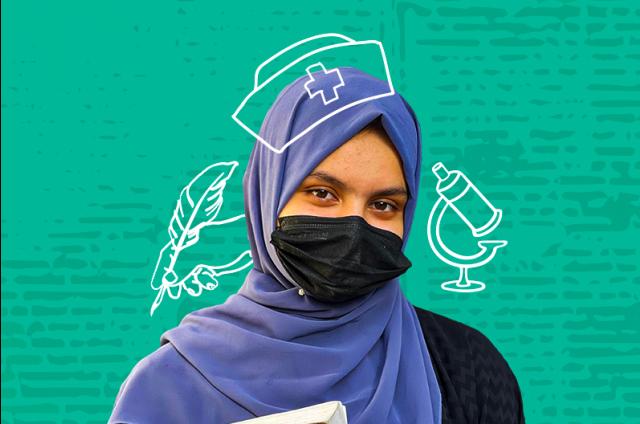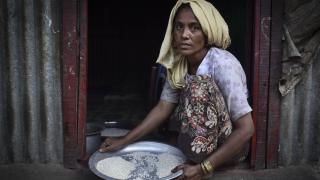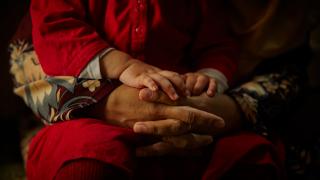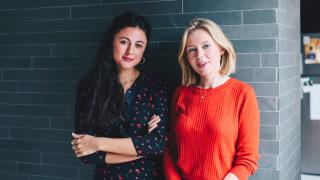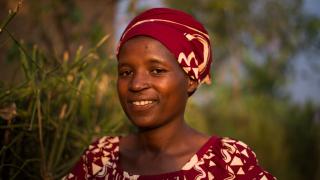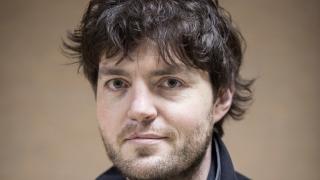Empowering Reads: A Journey Through Inspirational Books for Women and Girls
Reclaiming Their Stories: Celebrating the power of young women
Books to Inspire, Empower and Educate Adolecent Girls Worldwide
We are excited to announce the launch of Women for Women International's expanded Adolescent Girls Programme, an extension of our Stronger Women, Stronger Nations curriculum. This programme aims to support teenage girls aged 16-17 in conflict-affected countries, where they face extreme poverty, gender-based violence and limited educational opportunities. Globally, 119 million girls are not in school (source: UNICEF), highlighting the urgent need for intervention.
Our comprehensive curriculum covers gender equality, health, financial literacy, vocational skills, and future planning — designed to support young women and prepare them for economic independence. With a rights-based, survivor-centred approach, we ensure the safety and support of every participant.
Through our pilot programme in Rwanda and planned expansions to Iraq, Nigeria, and Afghanistan by the end of 2025, we aim to reach 3,000 girls.
In line with this mission, we've curated a selection of powerful books that resonate deeply with the themes of our Adolescent Girls Programme. These books connect to the rights of adolescents, addressing education, empowerment, resilience and activism. Happy reading!
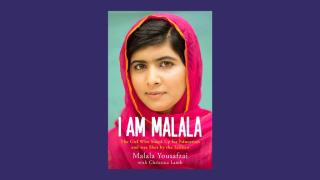
I Am Malala
Malala Yousafzai
Malala Yousafzai, the youngest-ever Nobel Prize laureate, is a global advocate for girls’ education. Her courageous stand against the Taliban’s oppressive policies has inspired millions, and her memoir tells the story of her incredible journey.
Why read it? I Am Malala: The Girl Who Stood Up for Education and Was Shot by the Taliban mirrors the challenges many adolescent girls face in our programme — the right to education which is often denied due to conflict and discrimination. Malala's story of resilience and activism serves as a reminder that education is key to empowerment.
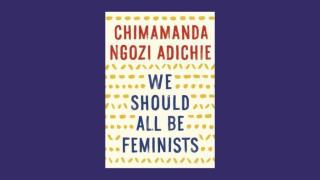
We Should All Be Feminists
Chimamanda Ngozi Adichie
Chimamanda Ngozi Adichie is a Nigerian author and feminist who has written widely about identity, gender and social issues. Her TEDx talk, which inspired this book, is a groundbreaking manifesto for gender equality.
Why read it? Adichie’s work aligns with our curriculum’s emphasis on gender equality and women’s rights. For teenage girls navigating a world that often marginalises them, her call for empowerment and inclusion is vital. With eloquence and passion, Adichie breaks down what feminism means today, making it accessible and relatable for people from all walks of life.
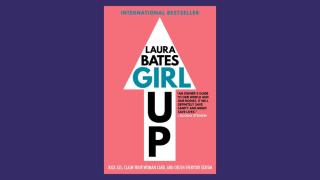
Girl Up
Laura Bates
Laura Bates is the founder of the Everyday Sexism Project, which has been a powerful platform for highlighting and addressing gender inequality.
Why read it? Packed with advice and inspiration, this book empowers young women to tackle sexism, build their confidence and assert their place in the world. Bates connects to the themes of our programme by encouraging young girls to challenge societal norms, build self-esteem and stand up against gender-based violence.
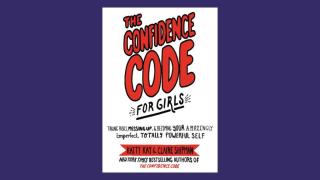
The Confidence Code for Girls
Katty Kay and Claire Shipman
Katty Kay is a journalist with BBC World News, and Claire Shipman is a journalist and advocate for women’s leadership. Together, they’ve written a book that aims to help girls break free from societal pressures and embrace their authentic selves.
Why read it? This book emphasises confidence and self-worth, key areas of focus in our Adolescent Girls Programme. By encouraging girls to take risks and embrace their unique strengths, it fosters the resilience and leadership skills our curriculum aims to build.
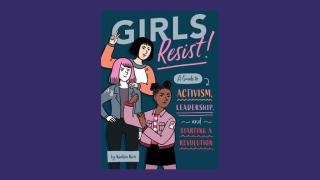
Girls Resist!
KaeLyn Rich
KaeLyn Rich is a writer and activist who works to promote social justice, particularly for youth and women.
Why read it? For young girls looking to make a difference, this book offers a step-by-step guide to activism, making it the perfect handbook for budding change-makers. Rich’s focus on activism mirrors our efforts to equip adolescent girls with leadership skills and the courage to advocate for their rights. This book is a powerful tool for those looking to effect change in their communities.
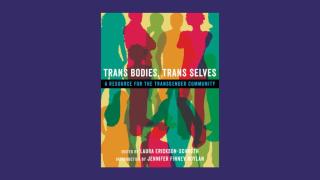
Trans Bodies, Trans Selves
Laura Erickson-Schroth
Laura Erickson-Schroth is a psychiatrist and transgender health advocate who focuses on promoting the well-being of transgender individuals.
Why read it? This invaluable resource tackles critical issues for the transgender community, providing education and support for individuals and allies alike. It aligns with our mission of creating safe spaces for all girls, regardless of gender identity.

The Girl Who Smiled Beads
Clemantine Wamariya
Clemantine Wamariya is a survivor of the 1994 Genocide Against the Tutsi in Rwanda and an advocate for displaced persons and refugees. Her memoir shares the story of her incredible personal journey.
Why read it? Clemantine’s story mirrors the experiences of many adolescent girls in our programme, who are often displaced by conflict and violence. Her story is a powerful testament to the strength it takes to overcome trauma and reclaim one’s future.
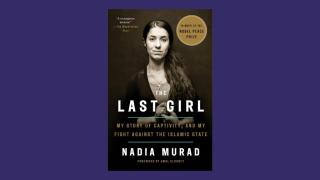
The Last Girl
Nadia Murad
Nadia Murad is a Yazidi human rights activist and Nobel Peace Prize laureate. She advocates for survivors of sexual violence and is a voice for the Yazidi community.
Why read it? Nadia’s story resonates deeply with the girls in our programme, many of whom are survivors of gender-based violence. Her activism and courage inspire young women to speak out and seek justice.
Read more
A marriage certificate might sound like just a piece of paper, but for marginalised women in eastern DRC, it’s an important step towards greater security, self-reliance and securing rights.
Our Global Advocacy Manager, Stephanie Siddall, discusses global progress towards gender equality and what more we must do to ensure that the most marginalised women and girls aren't left behind.
Since August 2017, Myanmar has forced over 700,000 Rohingya refugees, mostly women and children, into makeshift communities at the border of neighbouring Bangladesh. Our Conflict Response Fund, launched in May 2019, is helping Rohingya women to regain stability for themselves and their families.
Child Marriage and Sexual Violence: The Effects of Displacement Facing Many Women and Girl Refugees
subtitle:
Child marriage rates are estimated to be four times higher among Syrian refugees today than among Syrians before the crisis, while Iraq’s has jumped from 15% to 24% in the past two decades of instability.
To mark the International Day for the Elimination of Sexual Violence in Conflict, we spoke to two women in our training programme who have chosen to speak out about their experiences.
Comfort Zones Anthology
subtitle:
On the eve of the publication of Comfort Zones anthology which encourages 28 female writers to dig deep and write something brave and new, Kate Hamilton and Emily Ames, founders of Sonder & Tell have pulled together some of their favourite story collections – to read, and then to pass on.
The fashion event of the year is here! Yes, that’s right the #SheInspiresMe Car Boot Sale is back with a bang on the 11th May. Read to see some of the fabulous pieces our staff members picked up at the 2018 Car Boot Sale.
In 2019, a quarter of a century on from the genocide, we celebrate the rise of Rwanda from the ashes of conflict, and the elevation of women's voices. The challenge of creating a lasting peace depended greatly on the actions of women, who were the majority of survivors.
International Women’s Day on 8th March is a fantastic opportunity to show your support for the global sisterhood. Here are eight ways you can get involved and support women survivors of war this year.
Carron Mann, Head of Policy and Advocacy, highlights our engagement with the UN’s 63rd Session of the Commission on the Status of Women, a key space for us to share our evidence and amplify the voices of the women we serve with key influencers.
"Words like ‘empowerment,’ ‘equality,’ ‘feminism,’ can sound so big that sometimes it’s hard to gauge the first step in joining such a dynamic and quickly growing global movement." Women for Women International Ambassador, Tom Burke, provides his 5 tips for men on how to be better allies to women.

